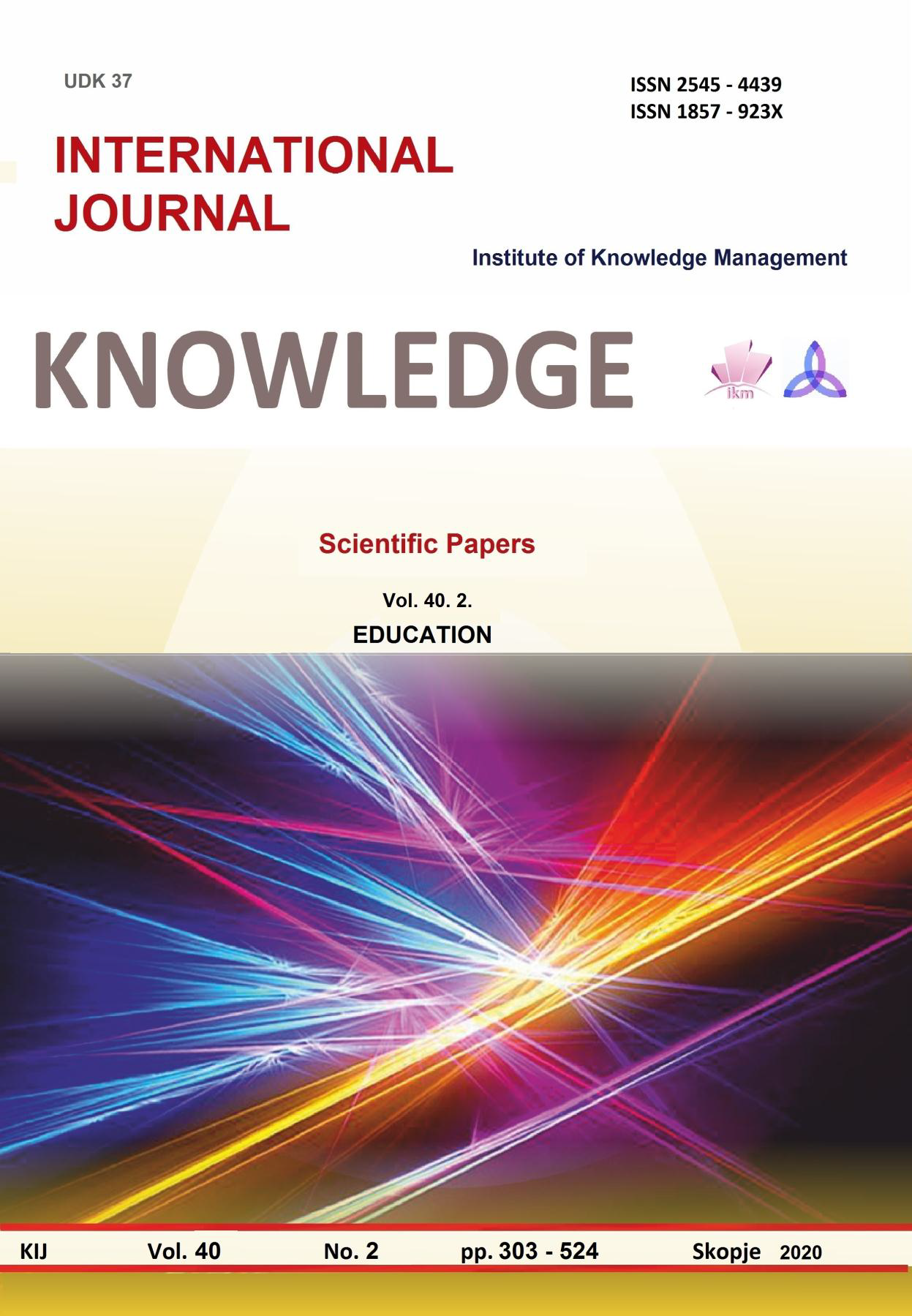НОВИ РОЛИ НА УЧИТЕЛЯ ПО ЧУЖД ЕЗИК ПРИ ПРИЛАГАНЕ НА КОМПЕТЕНТНОСТНИЯ ПОДХОД В ДИГИТАЛНАТА КЛАСНА СТАЯ
NEW ROLES OF THE FOREIGN LANGUAGE TEACHER WHEN APPLYING THE COMPETENCE APPROACH IN THE DIGITAL CLASSROOM
Author(s): Diana Zhelezova-MindizovaSubject(s): Education
Published by: Scientific Institute of Management and Knowledge
Keywords: competence approach; digital learning environment; roles of teachers
Summary/Abstract: The dynamics of the development of modern society brings to the fore the growing need for socially and technologically educated individuals capable of constructing their personal and professional behavior and making decisions for the benefit of society. All this demands rethinking the methodological basis of school education and changing attitudes from subject-oriented to competence-oriented teaching and learning, moving from the static concept of "learning content" and encyclopedic knowledge to the dynamic perception of competencies as a complex of knowledge, skills and attitudes that are developed at school and are enriched throughout life, towards "providing" the youngsters with life skills that will serve them as a full-fledged personality, social and professional realization and to ensure the sustainable development of future generations. The shift of focus in training from teaching knowledge to mastering key competencies and developing problem-solving skills brings to the fore the main features of the competency approach. In this report they are described as: integrated interdisciplinary interaction; practical orientation of the training; results orientation; application of innovative approaches and practices in the process of teaching and learning. Replacing teaching with learning means that what matters is not what teachers know and teach, but what skills students are expected to acquire and what results they should achieve. This is the essence of reversing the focus of education from subject-oriented learning to competence-oriented learning. It is the different understanding of the nature of the expected results and the purposes of school education that distinguishes the competence approach from the "traditional" one. In the traditional approach, the goals are focused on what students need to learn in the learning process - concepts, facts, rules, etc., relying on the fact that the more knowledge students acquire, the higher their level of education will be. Increasingly, however, these goals are not perceived by students in the digital classroom as valuable, and this makes their efforts sporadic, and their knowledge - unsustainable and ultimately - does not turn them into skills. The report introduces the European Framework for the Digital Competence of Teachers (DIGCOMPEDU), which contains a set of specific digital skills for raising the level and incorporating innovation in education. In this context, the new roles of the foreign language teacher as a mediator, moderator and expert in the digital educational environment are studied. The new roles of the teacher outline the profile of a professional with a high degree of flexibility, adaptability, transparency of his pedagogical style. A specialist who is able to analyze his professional behavior, to relate it to situations, to regulate it and direct it to external circumstances and individual characteristics. Such a person acts as field-independent and reflexive, in his behavior he stands out with individual, personal style. These new roles enable the teacher to value himself as a stimulator of his own potential for self-improvement and thus applying these roles may help to overcome inertial forces without external pressure and crisis reactions, without hurting his self-esteem
Journal: Knowledge - International Journal
- Issue Year: 40/2020
- Issue No: 2
- Page Range: 393 - 398
- Page Count: 6
- Language: English, Bulgarian

